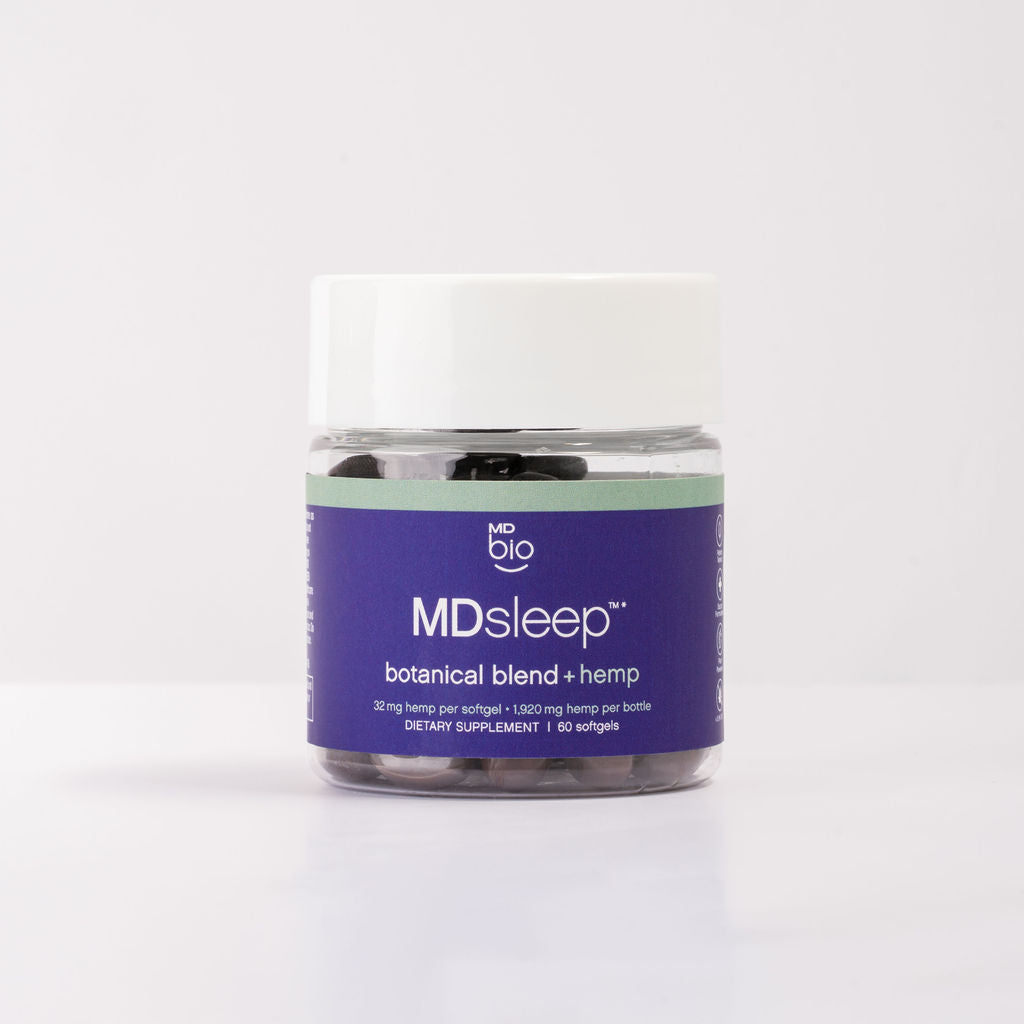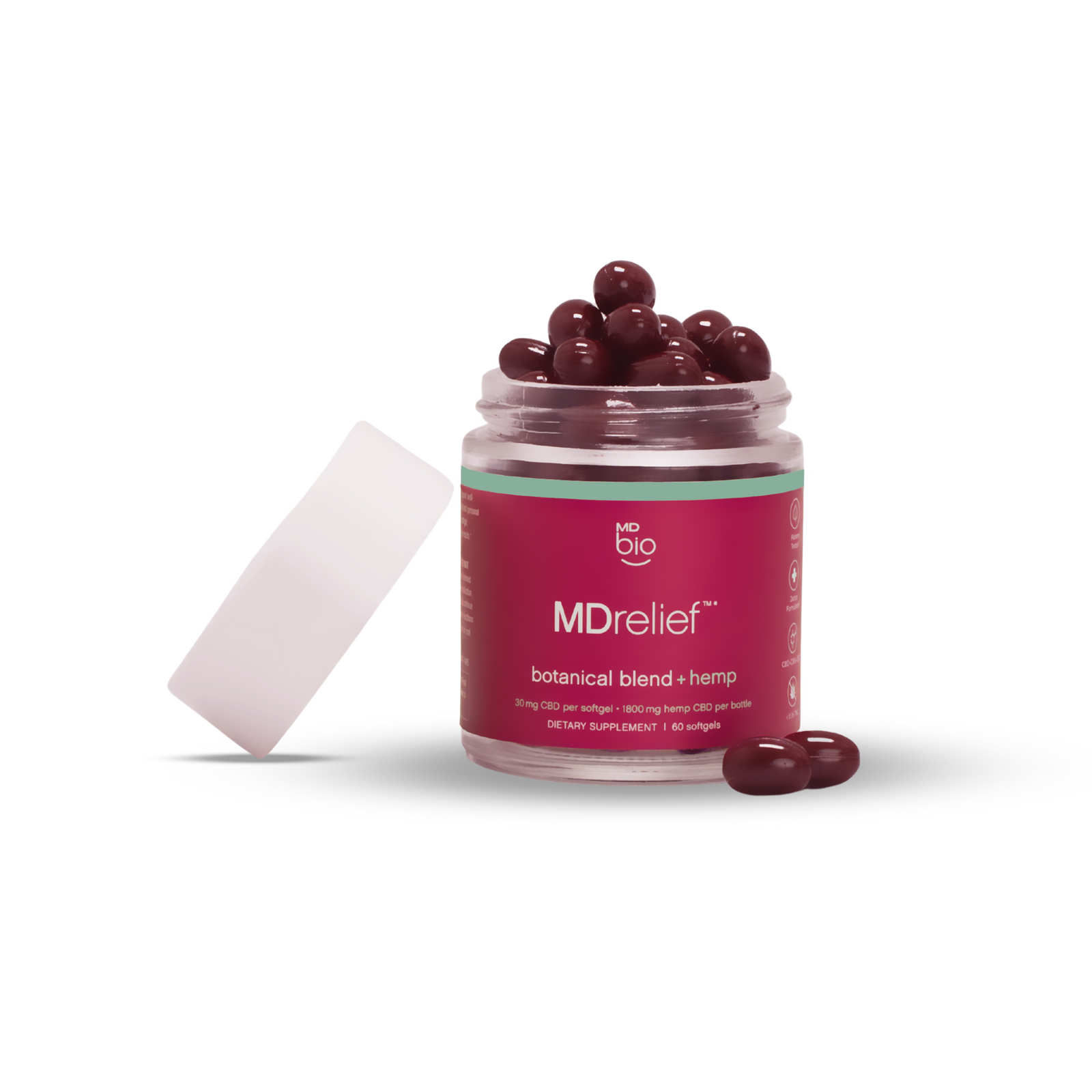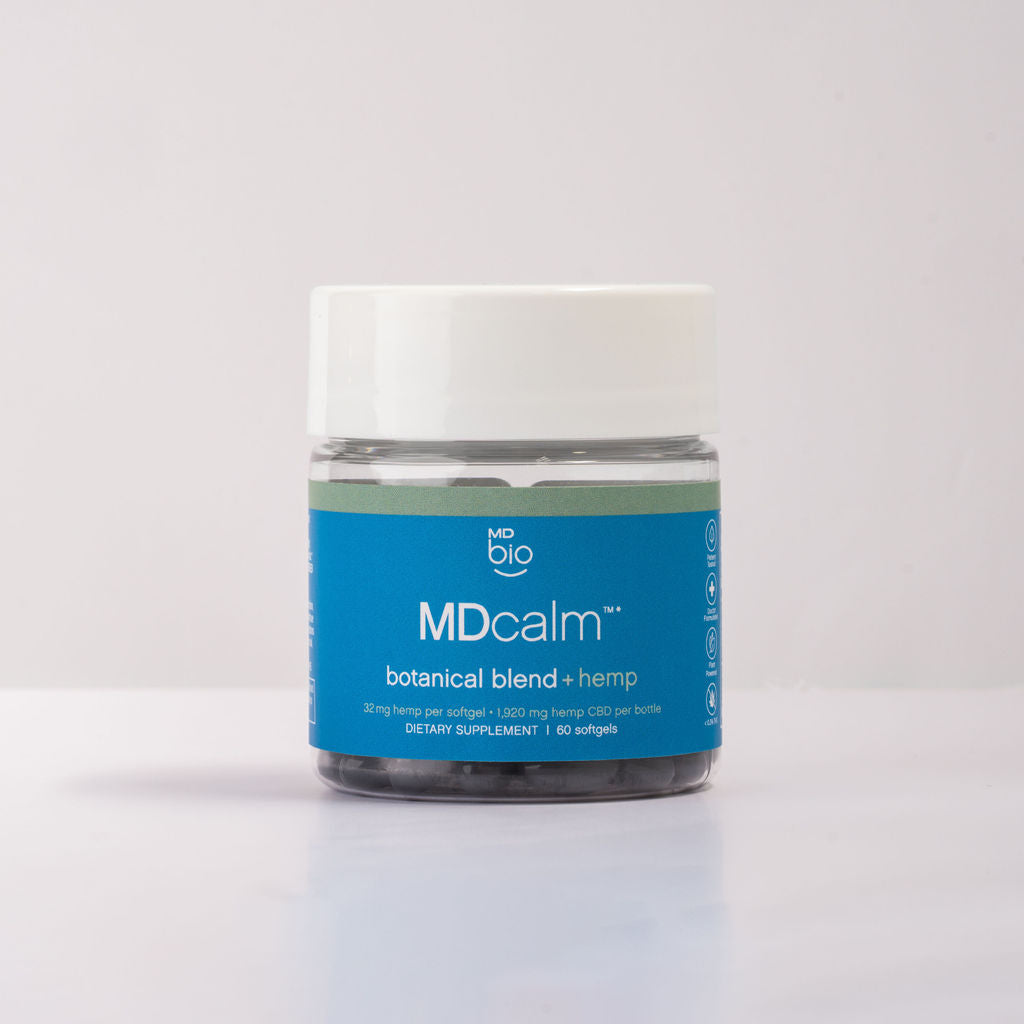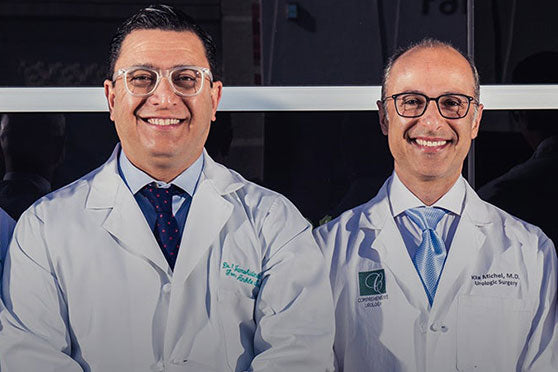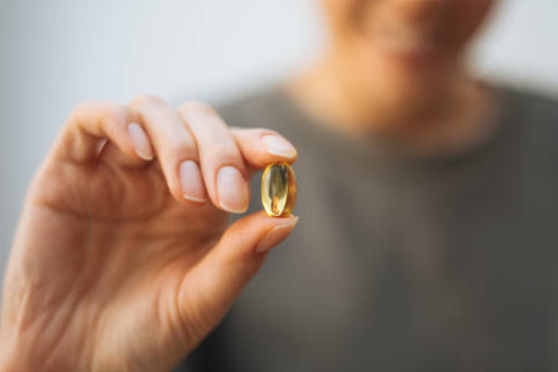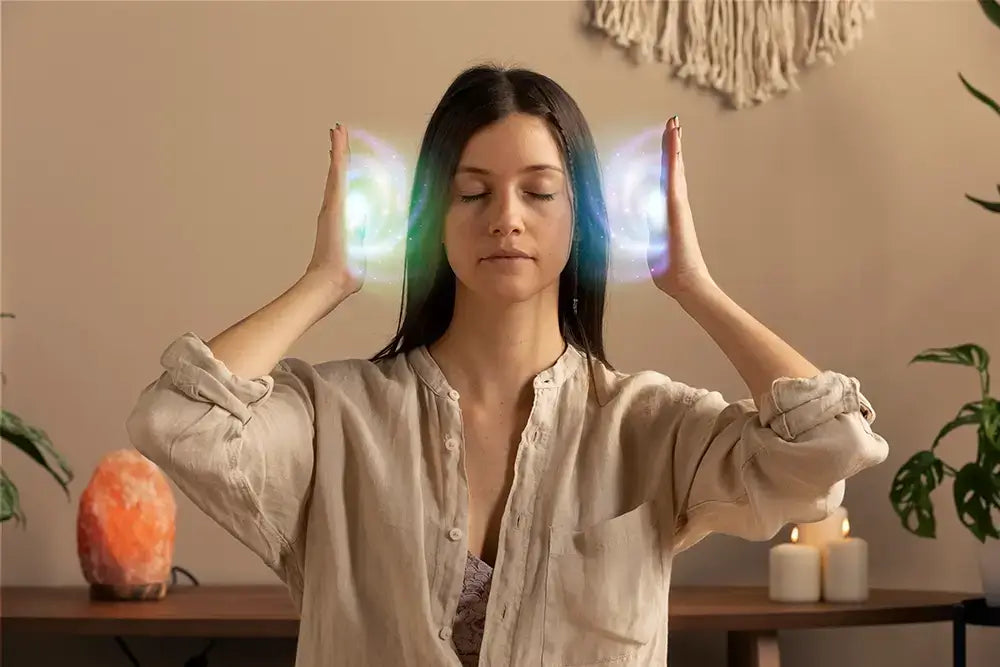
Our Favorite Sleep Aids Without Melatonin
The best way to improve your overall health naturally is to improve not only your sleep schedule but the quality of your sleep.
This article will discuss 19 different sleep aids that don't rely on melatonin, as well as why you should be cautious about melatonin. With so many options to choose from, there's something for everyone to try.
Why You Should Avoid Melatonin
Natural remedies can improve your quality of sleep while helping you feel your best one step at a time. Improving your sleep involves using natural supplements to boost your body's natural affinity, but extended use of supplements like melatonin may lead to unhealthy dependencies and harmful effects on your body.
Your body naturally produces melatonin and long-term use can create issues with your circadian rhythm that cause more harm than good. Despite reports showing the health concerns around melatonin, consumers continue to use it. Below are some of the best alternatives that can help you get a good night's rest without facing melatonin side effects.
1. Ashwagandha
For sleep supplements without melatonin, ashwagandha may be able to help. Also known as Indian ginseng and winter cherry, ashwagandha is an herbal, traditional medicine known to help those with trouble sleeping. As an adaptogen, a group of herbs that are known for protecting the body, there is preliminary research that suggests ashwagandha helps to fight stress and improve sleep.
Research also shows that by relieving some of the user's stress, people can fall asleep faster and longer with an increase in the quality of sleep. While stress is linked to poor sleep, ashwagandha's components allow the body to fight off daytime sleepiness and reach better levels of REM sleep.
This supplement should be avoided by people who are pregnant, breastfeeding, or recovering from surgery. Additionally, people with autoimmune diseases and thyroid disorders should avoid it as well. Talk with your doctor before taking the supplement to ensure it doesn't interfere with any existing medications.
2. Reishi Mushroom
In traditional Chinese medicine, the Reishi mushroom is known for being the “mushroom of immortality." While studies are lacking on the effectiveness of this fungus, it is held in high regard as a supplement.
There are few known side effects, if any, that would deter one from consuming the mushroom. It's safe to use and can be found in almost any Chinese herb store.
3. Full-Spectrum Hemp Oil (CBD)
For sleep aids without melatonin, more than a hundred different natural chemical compounds can be found in cannabidiol. These compounds, called phytocannabinoids, are known for regulating different body processes related to appetite, metabolism, immune response, and memory. It can be consumed in pills and capsules, as well as baked into candies and other foods.
While research on the effects of CBD as sleep supplements without melatonin is inconclusive so far, consumers swear by it. CBD oil is known to affect anxiety, and by lowering those stress levels, people may find it easier to get a full night's rest. The higher quality hemp oil entering the market now that cannabis is being legalized across the country means that better research can be conducted as the product is regulated.
4. Valerian Root Extract
With valerian root extract, , one of the leading insomnia herbs, you'll have a natural remedy for sleep that helps you get a restful night without any harmful ingredients. As one of the leading natural supplements for anxiety and insomnia, some research shows that valerian root extract can reduce the time it takes to fall asleep. Improved sleep quality was also reported, without the melatonin side effects like morning grogginess.
There are some concerns with taking valerian root extract, such as not taking it with alcohol or sedatives to prevent headaches and difficulty focusing. Unlike other sleep aids, there are no reports of “valerian addiction” from patients who take sleep supplements without melatonin. However, the extract may have the opposite of the desired effect and act as a stimulant. It's important to speak with your physician about the side effects and which sleep supplements are right for you.
5. Hops Flower Extract
When you think of hops, you likely think of beer. However, the hops flower has other medicinal uses that may work as sleep aids without melatonin. While the hop's flower extract won't induce sleep in people who take it as a supplement, the herbal remedy does have sedative effects that impact the quality of sleep.
When combined with other herbs and natural medicines, hops can reduce anxiety and help treat the effects of sleep disorders. Always consult your healthcare provider before taking any supplements to aid you with sleep to ensure that the side effects are minimal and that the hops will not conflict with any existing medications you take.
6. L-Theanine
To get a restful night, L-Theanine for sleep may be the natural remedy for you. This naturally occurring amino acid can be found in herbal teas that encourage relaxation. As an amino acid, L-Theanine promotes chemicals in the brain like dopamine and serotonin. When paired together, these chemicals release a wave of calm and general well-being through the brain that can improve sleep.
L-Theanine can be found in certain mushrooms. Black tea and green tea contain the amino acid L-Theanine as well, which can mitigate how caffeine affects your body. Consuming some of this herbal supplement can help you wind down after a busy day, especially when paired with other natural remedies as well.
7. Lavender Flower Extract
Lavender is a widely known herbal remedy for many things such as anxiety, stress, and common aches and pains. The soothing effects of lavender and the fragrant aroma have proven useful for minimizing the effects of insomnia in those with mild symptoms. Not only did the extract allow people to fall asleep comfortably, but it also reduced the rates of people who woke up in the middle of the night. Those that did were able to comfortably go back to sleep without any issues.
Additionally, utilizing the fragrance for aromatherapy has proven to be an accessible way to safely treat sleep-related issues. Those who are opposed to consuming the supplement can instead fill the room with the scent and breathe it in throughout the day to ease the tension in their body and improve the quality of their sleep over time. The fragrance can be mixed with other scents if lavender alone is too strong to create a calming environment.
Whether you choose to consume lavender in a tea blend or utilize its calming effects through aromatherapy, consult your doctor about whether it will impact any current medications you are taking. While lavender is generally considered safe to use, it's better to be safe than sorry when looking for ways to improve your sleep!
8. CBN
There are many misconceptions about how cannabinol affects sleeping patterns when consumed. Out of all the compounds in cannabis, cannabinol is the most potent sedative component. CBN is preferred for sleep-related treatments when used alone, revealing that those who use it have experienced a better quality of sleep overall. This may be due to the properties in CBN which decrease blood pressure, leading to better relaxation and sleep.
CBN is known to help regulate the immune system as well as fight off the symptoms of arthritis and Crohn's disease by reducing inflammation and pain. By reducing the impact of these symptoms, users have been able to get better sleep. While more research needs to be done for conclusive results on how much CBN can improve your sleep, there are no psychoactive components in CBN, and it is unlikely to suffer negatively from consumption. At worst, you may feel fatigued if you use too much at once.
9. Passionflower Extract
The passionflower is commonly used as a natural remedy for insomnia. The plant has been tested and has shown sleep-promoting effects in animals, while human experiences depend on how the extract is consumed. In a studywhere participants drank either a passionflower tea or a placebo drink, some participants reported a subjective improvement in the quality of their sleep.
While the passionflower requires more studies to show the full spectrum of effects, it is safe for human consumption and can improve the quality of one's sleep overall. However, it may not be as effective as other methods listed. The extract can be consumed in tea or in the form of a supplement to aid with insomnia. If you have any concerns, consult your healthcare provider before adding the supplement to your daily routine.
10. Mint Leaf Extract
Peppermint is known to clear up congestion in the sinus, which can lead to a better quality of sleep. When your nasal passages are obstructed, you tend to switch from breathing through your nose to breathing through your mouth. This leads to bad breath among other unpleasant symptoms that make sleeping difficult. By clearing these passages, you can breathe easily at night.
Additionally, mint extract is known to improve energy overall when consumed. Whether used in tea or aromatherapy, studies have shown that peppermint oilcan reduce daytime sleepiness and improve your quality of sleep. It's caffeine-free, so you can consume a hot cup of tea before bed without worrying about the side effects.
11. Kava
This herbal remedy is renowned for its ability to combat anxiety, stress, and insomnia without hindering memory processes or motor function skills. The sedative properties of kava can aid with sleep, though some studies indicate it is not safe to consume regularly.
Within some reports, kava has been identified as toxic to consume and digest. Before considering this option as one of many sleep aids without melatonin, consult your general physician to see if kava is a good alternative to modern medicine for you.
12. Chamomile
Tea is a great way to unwind before bed, and the right ingredients can make the difference between a restless night and a restful one. Chamomile tea is known for its calming properties, reducing anxiety and inducing sleep for those who consume it before bed. Those who suffer from insomnia or nightmares may find it relieving, alleviating the symptoms and creating a peaceful night.
Additionally, chamomile tea doesn't contain caffeine. Without that, chamomile tea can help you sleep better rather than keep you awake. The components of the tea can aid in the sleep-wake transition, supporting a healthy sleep cycle and natural melatonin production in the body.
13. Patchouli
The natural chemicals in patchouli are known to increase the production of the neurotransmitters serotonin and dopamine. With increased production, the chemicals promote regulated sleep which will aid symptoms of insomnia. Like certain other essential oils, patchouli is great for deep relaxation that leads to restful sleep.
With its earthy musk, patchouli can be used in aromatherapy to reduce stress and promote meditation techniques that will aid the quality of your sleep. Both men and women can benefit from the effects of patchouli in aromatherapy, especially when paired with other calming fragrances. Application of the oil can also reduce inflammation and pain, resulting in a more restful night's sleep.
14. Magnesium
Magnesium is responsible for maintaining healthy brain and heart processes. Healthy levels of magnesium promote sleep by quieting the mind and body, making it easier to relax and rest. While you can take supplements, magnesium naturally occurs in certain foods, like avocado, dark chocolate, legumes, grains, and leafy greens. Adding these to your diet can help aid your sleeping patterns.
Consult your doctor about adding these to your diet if you have a low magnesium intake. Regulating this may improve the quality of sleep if you have a magnesium deficiency.
15. Lemon Balm
Derived from the mint family, lemon balm can flavor foods and calm the mind with its unique citrus smell. It's safe to consume lemon balm in foods and supplements without side effects for most people. If you're uncertain, you can speak with your doctor to establish a plan of action.
The calming effects of lemon can be obtained through food or aromatherapy.
16. Tart Cherry Extract
Tart cherry juice, also known as sour cherry juice, naturally raises melatonin levels in the body safely. Doing so can help people fall asleep naturally without additional supplements. While some forms of therapy may be more beneficial in relieving insomnia, the juice is a subtle way to reap the benefits without medical intervention.
The juice tends to be quite sour, but it can be mixed with other drinks or water to make the flavor more appealing.
17. 5-HTP
Naturally produced in our bodies, this amino acid promotes serotonin production. By encouraging the production of natural sleep hormones, your body can establish a healthy balance that will not only help you fall asleep but stay asleep. You'll find that, unlike other sleep aids without melatonin, 5-HTP will regulate your sleep cycle naturally.
While the evidence is lacking in some studies, some users have reported improvements in depression symptoms as well, allowing them to sleep better. To avoid anything like melatonin side effects, be sure to consult your doctor before adding this supplement to your routine.
18. GABA
This neurotransmitter serves as an amino acid that regulates the nervous system. While naturally produced by the body, sometimes it needs a little help to create enough to improve sleep. There are questions about the safety of taking GABA as a supplement, but it naturally occurs in some foods (like tomatoes) and the body.
Some studies show how GABA improves not just the quality of sleep, but the objective efficacy of the hours slept.
19. Tryptophan
Low tryptophan levels have been connected to low serotonin levels, reducing the quality of sleep. While tryptophan is only one component needed to regulate the productionof serotonin and can be converted to 5-HTP, it's important in keeping the body balanced.
Consult your doctor if you're having trouble sleeping as they may recommend a supplement that can help, or introduce foods to your diet that will increase the amount of protein you consume, therefore increasing how much tryptophan enters your body.
MDsleep: The Sleep Aid That Has It All
When you take a supplement that combines multiple ingredients, you don't have to settle for just one. With MDsleep, you avoid the potential long-term effects of melatonin by swapping the ingredient for hemp extract and other natural, botanical extracts that are beneficial for you.
This synergizing blend of herbs is doctor-formulated and patient-tested, made from only the best sustainably sourced ingredients. MDsleep is sure to help you sleep soundly through the benefits of natural medicine.
Quality rest is essential to boosting your immunity and mood. With this natural blend of hops extract, valerian extract, full-spectrum hemp, and other natural herbs, you're sure to see an increase in the quality of your sleep while avoiding melatonin side effects.
Melatonin Alternatives | Final Thoughts
There are many sleep aids without melatonin that can be beneficial to you. Whether you find sources of these components in food, drinks, or supplements, they are essential to getting a good night's rest. Additionally, aromatherapy can help create a calming environment conducive to excellent rest, granting you the chance to sleep well.
- Unlock the Secrets of Ashwagandha and Valerian Root: Explore Their Synergy and Differences. Dive Deeper at MD Bio Wellness.
- Discover the 10 Spiritual Meanings of Lavender!




